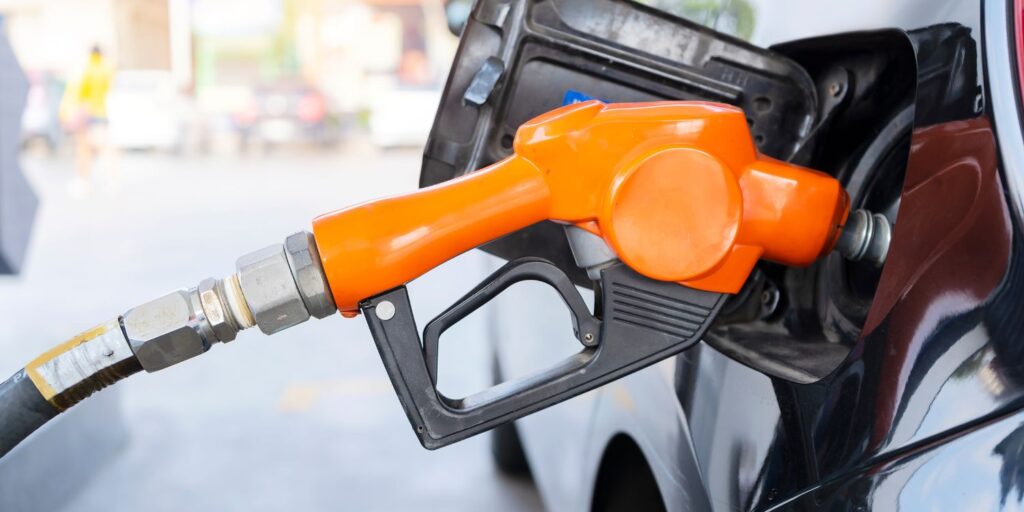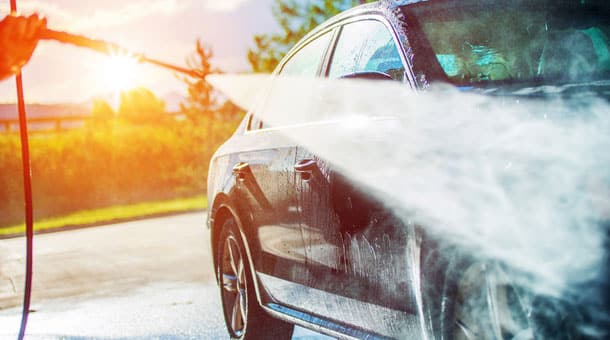Experiencing car jerking when accelerating, especially at low speeds, can be disconcerting and shouldn’t be overlooked.
Aside from just being annoying, when your car jerks while accelerating, it’s usually a sign that something might be wrong with your vehicle.
Not dismissing this symptom is essential, as it could signify impending problems that may worsen without intervention. Neglecting the jerking could lead to more severe issues down the line, necessitating costly repairs or extensive maintenance procedures.
To address the problem effectively, consider taking proactive measures such as scheduling preventative maintenance or promptly seeking auto repair services.
By addressing the root cause of the jerking, you can safeguard the smooth operation and longevity of your vehicle, ensuring continued reliability on the road.
10 Underlying Reasons Behind It
Let’s Discuss all the 10 reasons why your car might be Jerking while accelerating
Transmission Troubles
The sudden jerks you feel when problems with the transmission system usually cause your car speed up. Fluid levels and wear on transmission components play pivotal roles in this phenomenon.
A thorough examination of these elements is necessary to identify and rectify issues contributing to jerky accelerations.
By promptly addressing transmission problems, drivers can restore smooth and seamless acceleration, enhancing driving comfort and safety.
Deciphering Engine Misfires
Inside the complicated workings of the engine, there’s a mysterious problem called misfires. These misfires can cause your car to jerk when you accelerate.
Malfunctions in spark plugs, ignition coils, or fuel injectors disrupt the harmonious orchestration of combustion, leading to erratic engine performance.
Delving into these complexities requires meticulous inspection and diagnosis to pinpoint and resolve underlying issues.
By addressing engine misfires effectively, drivers can restore confidence in their vehicle’s acceleration, ensuring a smoother and more enjoyable driving experience.
Navigating Fuel System
With its intricate network of components, the fuel system presents yet another layer of mystery in the quest to understand jerky accelerations.
Problems with fuel filters, pumps, or injectors can disrupt fuel flow to the engine, resulting in abrupt jerks during acceleration.
Thorough examination and diagnosis of the fuel system are essential to identify and rectify issues contributing to these disturbances.
By addressing fuel system challenges comprehensively, drivers can restore optimal fuel delivery and mitigate jerky accelerations, promoting smoother and more efficient driving.

Sortout Ignition System Complexity
The ignition system, an important part of how cars work, can have problems that make the car jerk when you speed up.
Even minor malfunctions in ignition components, such as coils and sensors, can disrupt the precise combustion timing, leading to inconsistent engine performance.
Resolving issues within the ignition system requires meticulous attention to detail and diagnostic expertise to ensure proper functionality.
By untangling the intricacies of the ignition system, drivers can eliminate disruptions to acceleration, restoring smooth and predictable engine operation.
Detecting Vacuum Leaks
Hidden within the labyrinth of hoses and gaskets lies the elusive challenge of vacuum leaks, which can manifest as jerky accelerations.
Identifying and repairing these leaks requires a systematic approach to locating and sealing gaps within the vacuum system.
By detecting and rectifying vacuum leaks promptly, drivers can restore optimal engine performance and eliminate disturbances to acceleration, ensuring a more enjoyable and responsive driving experience.
Ensuring Sensor Functionality
Modern vehicles rely on many sensors to monitor and regulate engine performance, and malfunctions in these sensors can contribute to jerky accelerations.
Ensuring the proper functionality of sensors, such as mass airflow and throttle position, is essential to diagnose and address acceleration-related issues effectively.
A thorough inspection and diagnostic testing are necessary to identify and rectify sensor malfunctions, restoring smooth and predictable acceleration.
By ensuring sensor functionality, drivers can optimize engine performance and enhance the driving experience.
Addressing Module Malfunctions
Electronic modules within the vehicle’s systems play a crucial role in engine management and propulsion, and malfunctions in these modules can contribute to jerky accelerations.
Identifying and rectifying glitches within electronic modules requires specialized diagnostic equipment and expertise.
By addressing module malfunctions promptly, drivers can restore optimal engine performance and eliminate disturbances to acceleration, ensuring a smoother and more responsive driving experience.
Mitigating Engine Mount Wear
Over time, engine mounts can deteriorate, leading to excessive engine movement and vibrations during acceleration. Addressing worn-out mounts requires replacement and proper alignment to ensure driving stability and comfort.
By mitigating engine mount wear, drivers can minimize disturbances to acceleration and enhance the overall driving experience.
FAQS
Some Frequently Asked Questions about Car Jerking While Accelerating
What causes the car to jerk during acceleration?
Car jerking during acceleration can be caused by various factors such as transmission problems, engine misfires, fuel system issues, ignition system complexities, vacuum leaks, sensor malfunctions, module glitches, or engine mount wear.
How do transmission troubles contribute to jerky accelerations?
Transmission issues, including low fluid levels and worn components, can lead to jerky accelerations.
Addressing these problems promptly through a thorough examination and necessary repairs can restore smooth acceleration and enhance driving safety.
What role do engine misfires play in jerky accelerations?
Engine misfires disrupt combustion, resulting in erratic engine performance and jerky accelerations.
Malfunctions in spark plugs, ignition coils, or fuel injectors are common culprits, requiring meticulous inspection and diagnosis for effective resolution.
How does the fuel system affect acceleration smoothness?
Problems with fuel filters, pumps, or injectors can disrupt fuel flow to the engine, leading to abrupt jerks during acceleration.
Thorough examination and diagnosis of the fuel system are essential to identify and rectify issues contributing to these disturbances.
What complexities are involved in the ignition system that could cause jerky accelerations?
Even minor malfunctions in ignition components such as coils and sensors can disrupt combustion timing, resulting in inconsistent engine performance and jerky accelerations.
Resolving ignition system issues requires meticulous attention to detail and diagnostic expertise.
What are vacuum leaks, and how do they contribute to jerky accelerations?
Vacuum leaks occur when gaps within the vacuum system lead to jerky accelerations.
Detecting and repairing these leaks promptly is crucial to restoring optimal engine performance and eliminating disturbances during acceleration.
Why is ensuring sensor functionality important in addressing jerky accelerations?
Malfunctions in sensors such as mass airflow and throttle position can contribute to jerky accelerations.
A thorough inspection and diagnostic testing are necessary to identify and rectify sensor issues, restoring smooth and predictable acceleration.
How do module malfunctions and engine mount wear impact acceleration smoothness?
Module glitches and engine mount wear can also contribute to jerky accelerations.
Prompt identification and rectification of these issues are essential to restore optimal engine performance, minimize disturbances during acceleration, and enhance the overall driving experience.
Conclusion
To sum up, feeling your car jerk when you speed up, especially at slow speeds, isn’t just annoying—it usually means there’s a problem you shouldn’t ignore.
Beyond being bothersome, these jerks could indicate impending problems that may worsen if left unaddressed.
Neglecting to address the root cause of the jerking could lead to more severe issues, resulting in costly repairs or extensive maintenance procedures.
To effectively tackle the problem, it’s essential to take proactive measures such as scheduling preventative maintenance or promptly seeking auto repair services.
By addressing the underlying reasons behind the jerky acceleration, you can safeguard the smooth operation and longevity of your vehicle, ensuring continued reliability on the road.
Whether it’s transmission troubles, engine misfires, fuel system challenges, ignition system complexity, vacuum leaks, sensor functionality issues, module malfunctions, or engine mount wear, each potential cause of jerky acceleration requires careful examination and resolution.
By understanding these underlying reasons and taking appropriate action, drivers can enjoy a smoother and more enjoyable driving experience while ensuring the longevity and safety of their vehicles.




